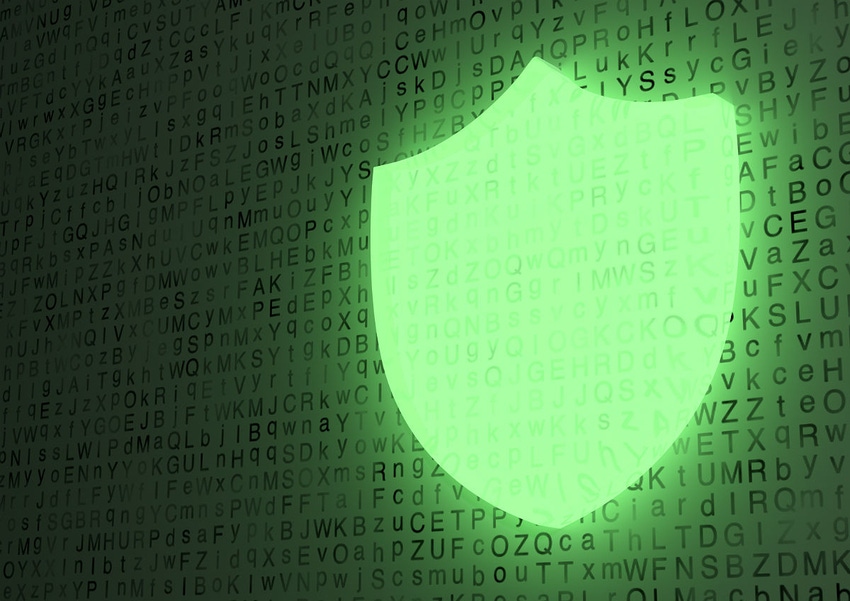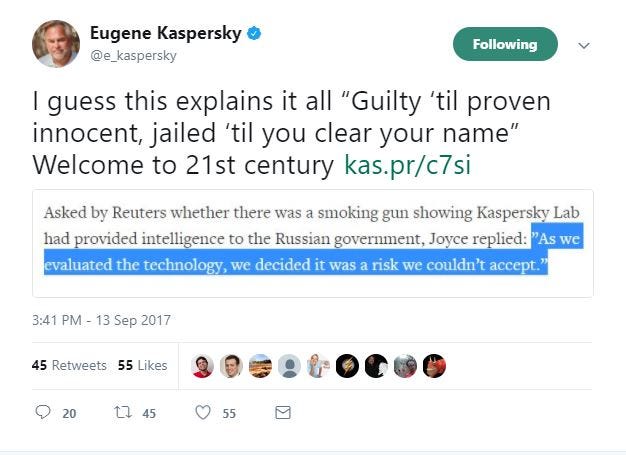U.S. Ban of Kaspersky Software Will Leave a Mark
Partners and customers may like Kaspersky Labs software, but recent U.S. government moves could make quality a moot point.
September 14, 2017


Larry Walsh
By Larry Walsh, CEO and Chief Analyst, The 2112 Group
The U.S. government’s ban of Kaspersky Lab software from its networks and computers this week comes as no surprise as it caps a long and slow stretch of scrutiny of the Russia-based security vendor. Nevertheless, the federal government’s decision could have broad implications for the company’s commercial sales.
While Kaspersky Lab, which often refers to itself as “Team Green” – a reflection of its corporate color – does little business with U.S. government agencies, the label “threat to national security” will leave an indelible mark on the Russian security bear’s brand and create a barrier to sales for its partners.
U.S. government regulators tagged Kaspersky as a potential threat to national security, saying the company’s close ties to the Kremlin could allow it to leverage its software for surveillance and espionage.
In a statement, the U.S. Department of Homeland Security said, “The risk that the Russian government, whether acting on its own or in collaboration with Kaspersky, could capitalize on access provided by Kaspersky products to compromise federal information and information systems directly implicates U.S. national security.”
Kaspersky Lab, often rated as one of the most effective antivirus and malware protection vendors in the world, says the U.S. government offered no evidence of collusion between it and any government intelligence apparatus. In response, founder Eugene Kaspersky tweeted, “guilty until proven innocent.”

Still, the U.S. government’s decision is a blow to Kaspersky Lab, which spent years trying to curry favor with Washington insiders and government agencies. The company enlisted the likes of former National Security Agency director Michael Hayden and former White House cybersecurity czar Howard Schmidt to help navigate the Beltway corridors of power and influence.
By many estimates, the impact of Washington’s decision to kick out Kaspersky from federal sales will have little direct impact on the company’s revenue and operations. U.S. federal government sales represent a tiny fraction of the company’s global sales. The direct collateral impact on commercial and consumer sales remains to be seen, as the U.S. market represents at least one-fifth of the company’s global revenue. Since the U.S. government began scrutinizing Kaspersky Lab, reports indicate that the company’s sales to U.S. commercial customers and consumers have fallen. Over the past two years, numerous executives that drove Kaspersky Lab’s regional growth left the company. And security vendors such as Symantec, McAfee and Sophos no longer consider Kaspersky a credible competitive threat, despite recent moves to revitalize its channel presence. Those include recent hires of former Fuze and XO executives.
Even before the U.S. government announced its ban, Best Buy – the country’s largest retailer of consumer hardware and software – said it was pulling Kaspersky products off its shelves. While it’s unknown how much of an impact the Best Buy decision will have on Kaspersky Lab sales, the broader impact is huge. The Best Buy move signals a confirmation to the rest of the market that the U.S. government’s suspicions are credible.
In the B2B channel, solution providers continue to swear by the quality and profitability of Kaspersky Lab software. Kaspersky Lab’s channel programs are …
… among the simplest and most transparent in the market, making it easy for partners to understand profitability models.
While Kaspersky Lab is profitable, solution providers harbor suspicions of their own. In previous research conducted by The 2112 Group, Kaspersky Lab partners said the vendor was the most likely to collaborate with government intelligence agencies and hack competitors for an advantage.
So, just how much of an impact does the government labeling a foreign technology company as a national security threat have on commercial sales? Look no further than Huawei.
In 2012, the U.S. House Intelligence Committee issued a report citing China-based Huawei – a manufacturer of networking and telecommunications equipment – as a potential national security threat and advised U.S. companies not to use its products. The result was a tainting of the Chinese company’s reputation that led to its withdrawal from the U.S. market.
Kaspersky Lab partners may remain confident in the company’s product quality and effectiveness, but that will go only so far in a market driven by perception. The U.S. government ban will likely taint commercial buyers’ perceptions of Kaspersky Lab, making it harder for solution providers to sell the company’s products. Further, competitors will likely use the ban – overtly or subtly – to direct business away from Kaspersky Lab and its partners.
As Kermit the Frog bemoans, “It’s not easy being green.” Now, it’s no longer easy being a part of “Green Team” Kaspersky in the U.S. security market.
Larry Walsh is the CEO and chief analyst of The 2112 Group, a channel strategy and research firm. Follow Larry and 2112 on Twitter: @lmwalsh2112 and @the2112group.
Read more about:
AgentsYou May Also Like
